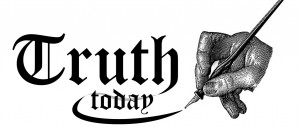[This was first posted May 24,2012. Updated for this repost. —Admin1.]
“Inconvenience” is defined by the dictionary as “trouble or difficulty caused to one’s personal requirements or comfort” and, may we add, difficulty caused to one’s desire to do as he wishes. God’s Truth is inconvenient to the man who would rather ignore it or listen instead to man-made ‘truths’. God’s Way is inconvenient to the man who would rather go his way.
The True God asks only two things of man:
- get to know HIm through His Truth/His Revelation,
- then act on that knowledge.
What is the use of striving to know the first without responding with obedience? Head knowledge must lead heart and will to act on God-given Truth.
Here is the first biblical example of how God’s Truth caused trouble and difficulty to man:
[AST] Genesis 2:16-17 And HASHEM God commanded the man, saying, “Of every tree you may freely eat; but of the Tree of Knowledge of Good and Bad, you must not eat thereof; for on the day you eat of it, you shall surely die.”
[EF] YHWH, God, commanded concerning the human, saying: From every (other) tree of the garden you may eat, yes, eat, 17 but from the Tree of the knowing of Good and Evil– you are not to eat from it, for on the day that you eat from it, you must die, yes, die.
To whom was this commandment given? To ‘the creature made from dust’ or .”adamah.” The next verse tells about how it is not good that man should be alone, so God makes him a helpmeet/helper “corresponding to him.”
So, this first human knew what he was to do and not do. Did God’s communication on this matter stop there? No, God adds a warning about the consequence of disobedience: “for in the day you eat of it, you will die.” Did this first human understand the word “die”; did he even have a concept of “death”? The text does not say, but knowing the God who communicates clearly, we may presume He did not leave this first human wondering. In fact, it is we–readers–who wonder what the Creator meant, since physical death is very much a part of our experience in a much shorter lifespan than —well, let’s call him as tradition refers to him —-Adam— who lived 930 years!
We know how the rest of that story went: It is not Adam but Eve who initiates the eating of the fruit from the forbidden tree. Did she know the commandment as well as the warning about consequence of disobedience? From her conversation with the serpent, she knew of the prohibition and there’s that inconvenient truth raising its ugly head this early in the history of humankind. It got in the way of Eve’s desire. Might the temptation be so strong that she could not have helped but succumb? She had a choice.
And where was Adam? Right beside her. Could he have reminded her about God’s commandment which he was the original recipient of? Of course. He had a choice not only to remind her, but to stop her. Not only did he choose to do none of the two options, he chose to go along with Eve’s choice! Three wrong choices, three failures on his part.
Could the first couple have rectified this disobedience? Had God given them instructions about what we now know about repentance—awareness of wrongdoing, regret, confession, do not repeat the sin? The text does not indicate that they knew what to do next . . . so they end up compounding the first disobedience with hiding, the natural behavior when one does not know what to do next.
God calls them Where are you?
Notice Adam’s answer:
I heard the sound of You in the garden, and I was afraid because I am naked, so I hid.
Did Adam tell a lie here? It sounded like the truth, except he could have said “I was afraid because Eve and I violated Your commandment.” He had been naked all the time he was interacting with God previously, so it sounds ridiculous to make nakedness an excuse for hiding. It’s an insult to God to give such an answer, who did Adam think he was talking to, how dare he beat around the [burning] bush! Does it sound like he was sorry? It sounded more like an attempt to cover up.
And so the finger-pointing begins.
The woman whom You gave to be with me—
she gave me of the tree, and I ate.
Adam actually points the finger at two “others” instead of owning up to his triple failure:
- God, for giving him the woman,
- and Eve, for passing on the fruit to him.
It’s God’s fault that he ate, it’s Eve fault that he ate. He made no choice?
Eve does not fare any better; she too doesn’t take responsibility, and points to the serpent.
The serpent wasn’t given a chance to defend himself, give a rebuttal, deny or point the finger elsewhere—he immediately got cursed to crawl on his belly and bite the dust, plus—verse 15, the enmity between the serpent and the woman, between his offspring and hers —a verse that will be explained in another article.
So, the first inconvenient truth — God’s first ‘DON’T’ — gets in the way of Adam and Eve’s ‘I WANT TO DO!’
The consequences:
To Eve:
I will greatly increase your suffering and your childbearing:
in pain shall you bear children .
Yet your craving shall be for your husband,
and he will rule over you.
To Adam:
Because you listened to the voice of your wife and ate of the tree about which I commanded you saying, ‘You shall eat of it,’
accursed is the ground because of you;
through suffering shall you eat of it all the days of your life.
Thorns and thistles shall it sprout for you,
and you shall eat the herb of the field.
By the sweat of your brow shall you eat bread until you return to the ground,
from which you were taken:
For you are dust. and to dust shall you return.
That is followed by God’s providing garments of skin replacing the fig leaves the couple used to cover their nakedness. One interpretation of this act of God is that He was simply preparing them for the environment outside of Eden that would be harsh compared to what they had been used to. The significance of the garments of skin as snake skin has been explained in another article so we will no longer deal with that here.
For ignoring God’s inconvenient truth, Adam and Eve placed themselves under a lifetime of inconveniences not only for themselves but for the generations after them . . . who, like them, were given free will to make a choice to obey or violate God’s known or revealed and expressed will, at any point in the progress of the “in the beginning” narratives.
There is no such thing as inherited sin, but there is an inclination within us to go against God’s commandments to challenge the inclination to obey. It is all about free will and the opportunity to exercise it by having more than one option; it is never about helplessness to ‘inherited’ sin. Read Ezekiel 18 to see how God deals with each generation.
Have you, reader, encountered any truth that is inconvenient for you? How about the Sabbath? How about the Leviticus 11 prescribed diet? How about ridding yourself of the “I”-dol idol the gets in the way of behaving more in the image of the Creator? What inconvenient truths have unsettled you while reading through the posts in this website?
NSB@S6K




Reader Comments